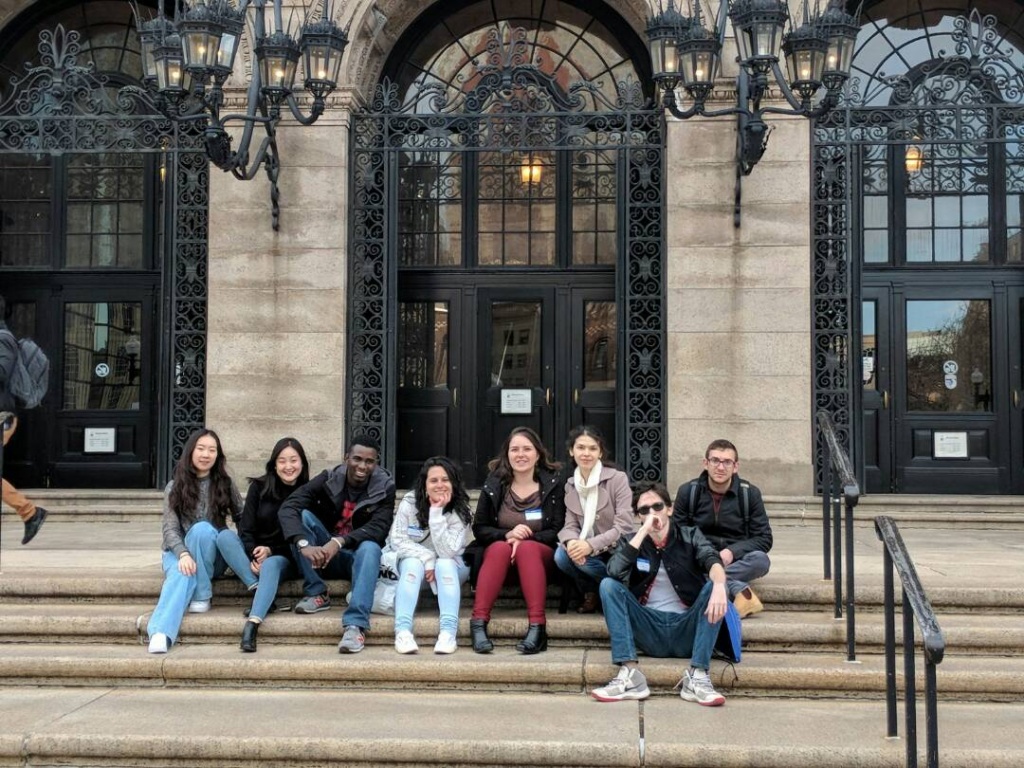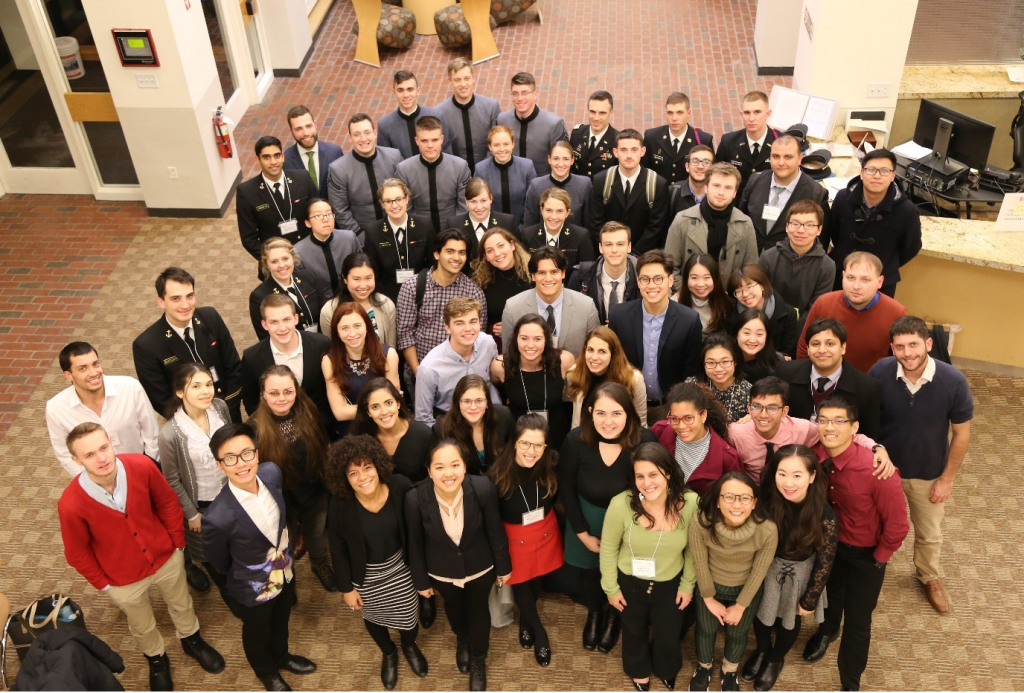
We answered 2 major questions — what is the liberal world order and what are the approaches of our countries to the current world order. Our delegation decided to collaborate with the students from MGIMO in our efforts to present comprehensive and definitive answers to the questions above. Students from MGIMO put the main focus on theory and backgrounds, while we delivered case studies. So, that was a good teamwork practice which helped us much to cover those huge issues.
We started with defining what the liberal world order gives — there's no universal definition for it, but it includes such common principles as multilateralism. Then, it is not only the free flow of trade but data and people, too. And finally, contrary to the world order after the WW2, the current agenda highlights the importance of the human rights in other countries which illustrates the increasing role of international organizations and also the raise of their influence.
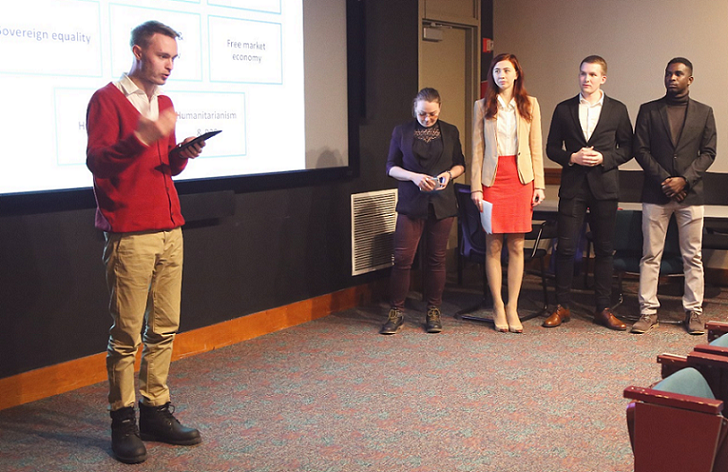
Russia though started democratic reforms is still an authoritarian state and continues the tradition of a strong country and leadership. After the end of the bipolar world order, Russia started to support multipolarism — the very first step was done in 1997 as China and Russia signed 'Joint Declaration on a Multipolar World and the Establishment of a New International Order' which later was registered in the UN. It is necessary for Russia to participate actively in international cooperation not only for resolving international problems but for its own sake, too. Russia is traditionally viewed as a country following expansionary policies. Nowadays key to competitiveness is the efficiency of production which requires the rational organization of labor, high levels of technologies and education. These factors characterize new players in the international arena such as Japan, South Korea, China and so on. Russia's economy and institutions still haven't reached the level of developed countries — globalization and further cooperation are core elements for national development and adoption of foreign experiences and practices.
We decided to outline 2 cases, or better say agendas, foreign policy illustrating Russia's willingness to cooperate for economic development and resolve international conflicts. We started with Sino-Russian relations, giving examples of how Russia and China foster their cooperation aimed at the interchange of best practices and their mutual wish to boost influence on the international stage. After the end of the bipolar world order, Russia started to support multipolarism — the very first step was made in 1997 as China and Russia signed 'Joint Declaration on a Multipolar World and the Establishment of a New International Order' which later was registered in the UN. It is necessary for Russia to participate actively in international cooperation not only for resolving international problems but for its own sake, too. Russia is traditionally viewed as a country following expansionary policies but nowadays the key to competitiveness is the efficiency of production which requires the rational organization of labour, high levels of technologies and education. So, here are the main points, illustrating Sino-Russian cooperation:
China played a significant role as a lender and investor to Russian state-controlled banks and companies subject to sanctions;
Russia supplied China with advanced equipment and technologies including military sector;
Joint naval exercises;
The initiative 'One belt one road';
Replacement of many Western companies in Russia by Chinese ones, especially in IT and telecommunications.
We concluded that Sino-Russian relations is still in a transactional state (and the economic relationship between 2 countries can't be compared to Russia's dependence on European markets) but the incentives for fostering relationship are the inability to cover all the sectors of technology and mutual wish to have more influence over the global public.
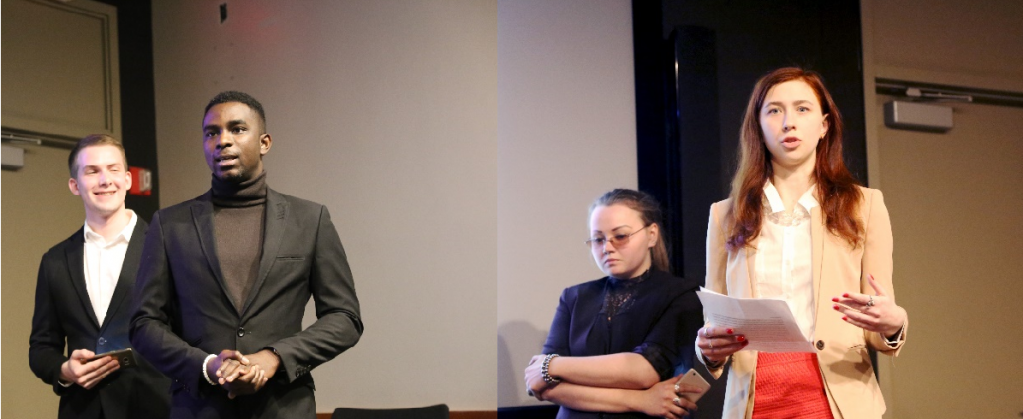
The second case was dedicated to the Middle East agenda and how Russia offers its pragmatic approach to bring the international world order closer to the polycentric model. Since one of the main features of such a world order is the recognition of the sovereignty of other countries and recognition of their right to form their regional spheres of influence, Russia supports the aspirations of the Middle Eastern partners to consolidate their internal powers. There are many examples when Russia offered its discussion platforms and its most objective and constructive point of view in order to solve regional conflicts and reduce the degree of tension. Here are the main points:
The National Dialogue Congress held in Sochi in the end of January — Russia tried to gather representatives of different political trends and supporters of different views in order to work out a unified concept for the further development of the Syrian state. Even though not all the goals of this Congress were achieved, the dialogue was initiated, and the delegates, with the direct participation of UN representatives, developed a declaration on the principles of resolving the Syrian crisis.
Conference within the framework of the Valdai Club, where the delegates from Iran, Iraq, Syria and other Middle Eastern states have repeatedly stressed the positive role of Russia and its contribution to the establishment of peace and order in this region.
Russia's mediation function in the settlement of the Palestinian-Israeli conflict. Recently, the Russian foreign policy department held talks with Israeli Prime Minister Benjamin Netanyahu and the President of the Palestinian Autonomy Mahmoud Abbas, within which the Russian side, without preconditions, offered both states a platform for subsequent negotiations. In the framework of the polycentric international system, Russia considers credibility and constructive approach as its main tools that will help to build an alternative to the liberal order of the Western model.
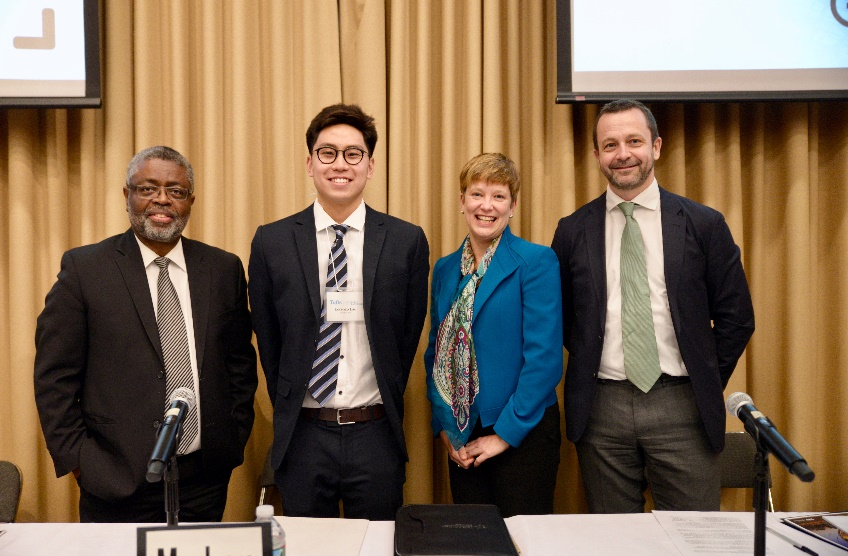
The Changing Social Contract? Globalization and Technology in the 21st Century.
Speakers: Abi Williams (Director of the Institute for Global Leadership), Michael J. Handel, Thomas Kochan, Nawaf Obaid, Jeff Vogel
Within this section, economic and social challenges to liberal order were emphasized. Globalization, growing inequality, instability and other problems make us think that we need to build a new social contract. Technologies and information play an important role in spreading democracy, but states can no longer control the flow of information. One of the brightest examples: fake news and its influence on the public trust.
The Future of R2P? Mass Atrocities and the Liberal World Order.
Speakers: Simon Adams, John Packer, Sergey Kislitsyn, Kate Cronin-Furman
Discussion about the future of the "Responsibility to Protect" initiative was one of the most emotional and intense because the question of genocide in the modern world and about its prevention in the future affects everyone. Researchers agreed that such initiatives should be considered at the international level and only through multilateral agreements. Unfortunately, the legal side of this issue has not been fully worked out yet, so we need to continue its development, paying special attention to the current cases like Rohingya genocide in Myanmar.
Despite the bad weather, another discussion took place in the evening devoted to international security issues. It was preceded by a speech by the former Canadian ambassador to the UN, Allan Rock, who was awarded for his active contribution to the establishment of peace throughout the world. The speech of the former ambassador was emotional, abounded with references to his own observations during his time at the UN, but the outlook for the future liberal order was disappointing: from his point of view, modern problems will be very difficult to overcome, because on the international stage there are such players with whom it is impossible to agree. Among such players, he marked Russia.
International Security
Speakers: Joanne Adamson, Mr. Johnson, Dr. Duchatel
This part of the symposium can be called the most practical one because specialists paid more attention to specific problems and ways to solve them. Among the most pressing issues were the proliferation of nuclear weapons and the role of North Korea, Iran and the problem of a Joint Comprehensive Plan of Action, as well as the impact of key nuclear-weapon States on proliferation and deterrence. The main result of this discussion can be concentrated in one phrase: “there is no space for disarmament discussions today but there is a space for crisis management talks”.
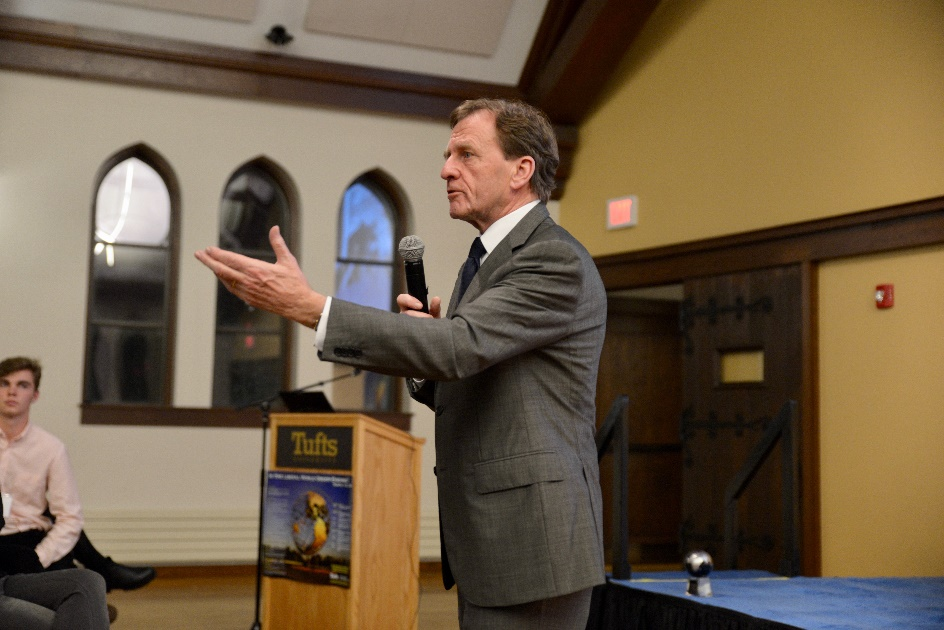
A Loss of Faith: The Rise of Populism and Nationalism
Speakers: Michael Lind, Mark Bailey, Prof. Packer, Ted Piccone
The growth of nationalism and populism is a frequent topic for public and scientific discussions after the administration of Donald Trump came to power in America. Participants also made a start from the unique concept that was proposed by the new administration — "America first". There's no doubt, that populism challenges the human right system, but nationalism itself is not incompatible with the liberal world order. Only when these two trends coincide, they become a big threat to liberalism, what we can observe today. One of the reasons is that the concept of human rights — one of the pillars of liberalism — is now in a vulnerable position.
Speech by Amina J. Mohammed (UN Deputy Secretary-General) did not leave anyone indifferent in the conference room. Having told the story of her life, Ms Mohammad shared her views on the modern international order, and also noted those moments that will need to be resolved in the near future. She stressed the importance of issues such as climate agreements (it is not surprising since she was Minister of the Environment in Nigeria), loss of life, displacement, challenged leadership etc.
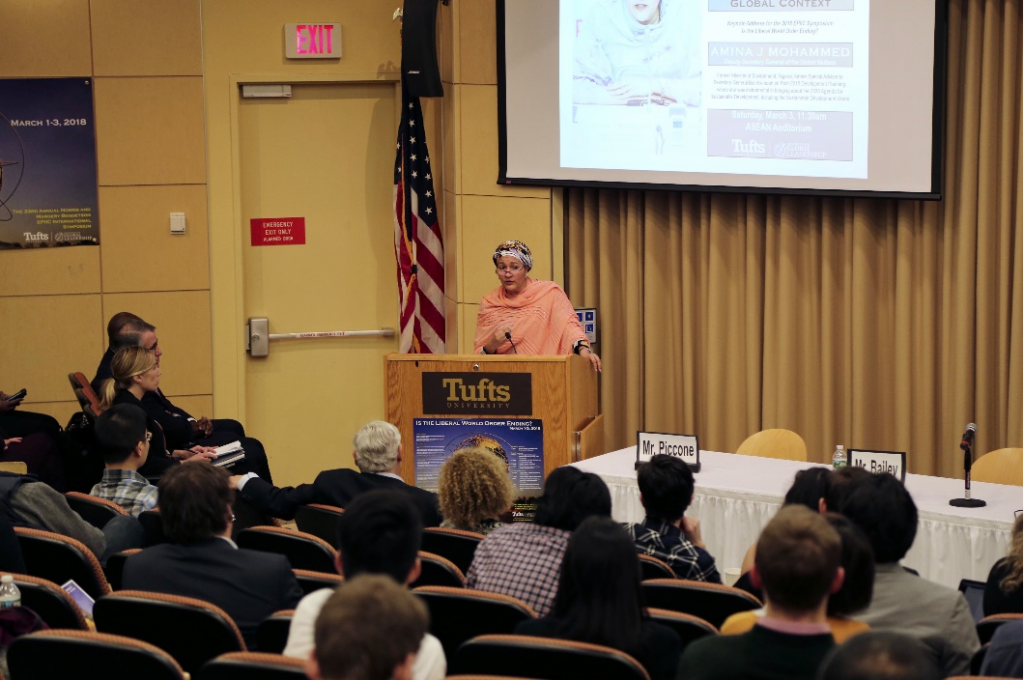
The Rise of Alternative Forms of Government
Speakers: Sultan Feher, Tarun Chhabra, Fyodor Voytolovsky, W. Andy Knight, Edward Luce
The focus of this discussion was the distribution of the so-called illiberal democracies - hybrid political systems, which are either a challenge for the liberal democratic system, or they represent a political form of adaptation to the new challenges of our time.
The Role of the United States in the Liberal World Order: Past, Present and Future.
Speakers: Daniel Drezner, Daniel Benaim, Anthony Dworkin, Fyodor Voytolovsky.
The participants considered not only the historical development of America's role in shaping the liberal world order, but also tried to predict whether America would give up the role of "hegemon" in this order, or even with the spread of nationalism and populism, there should be no change. All points of view are so different and well-reasoned that it is extremely difficult to bring each thesis. However, in one issue, most researchers agreed - despite the concept of "America first", in the near future, America is unlikely to give up its leading place and will keep the liberal order to the end.
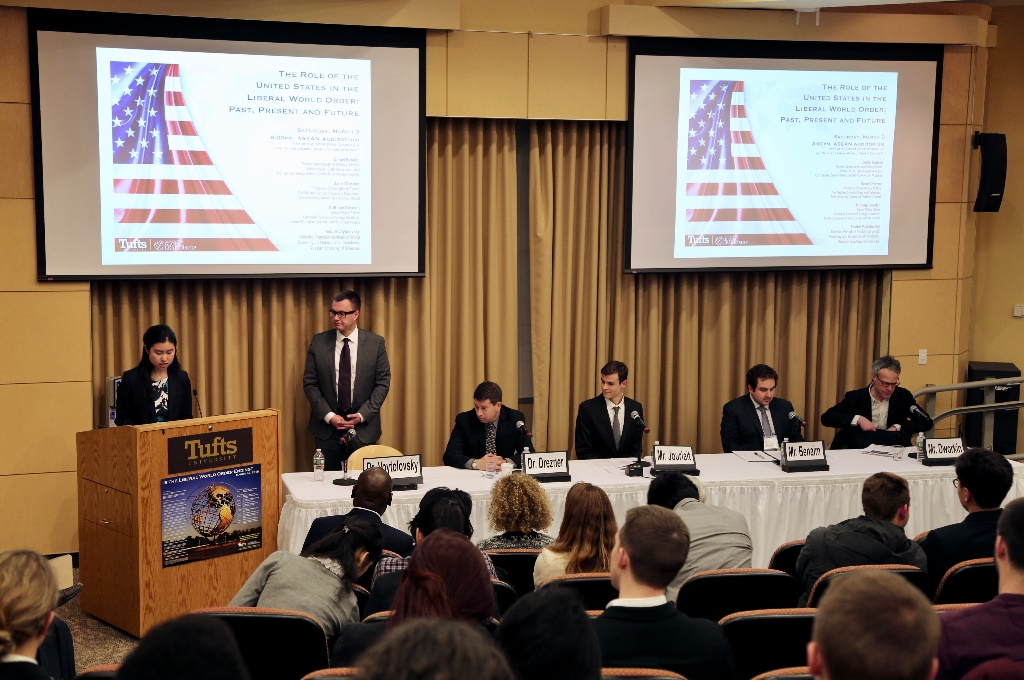
AFTER: A Few Thoughts & Impressions
PolinaEven two weeks after the symposium it is difficult to formulate all those considerations that emerged during bright and very interesting speeches and discussions. Tufts University and its hospitable students and professors have given us not just an opportunity to observe how new ideas are born and old concepts about the modern world order are being supplemented, but we were able to become a part of this process. Each session of the symposium was devoted to a specific aspect of international relations. We heard different points of view on such important issues as migration processes, climate change, the social contract in the era of globalization, the impact of technology, the future of the R2P concept, the problems of nuclear proliferation and the specifics of the interaction between the United States and Russia. And this is still an incomplete list because the formal title of each report hides a lot of details and arguments, which are important screws in the mechanism of the international order.
You can ask me, what was the answer to the main question — can we talk about the end of the liberal order or not? It seems to me that the aim of the symposium was not to give a clear answer, but to invite each participant and especially students from different countries to think about the problems that the world is facing today.
Most researchers are not ready to admit that the world does not fit into the framework of the liberal order. More precisely, they are not ready to offer any completely new model, since the "old" one has not yet shown its full potential. Of course, the problem of spreading illiberal democracies cannot be hidden. But it makes us think about whether we correctly define and describe the existing international order.
Not only outstanding scientists faced the terminological problem. Before speaking at the student session with a report on Russia's approaches to the liberal international order, the students of the two Russian delegations had to enter into heated controversy. We had to compare different points of view about what kind of order can be called liberal. This proves once again how important it is to discuss such issues at different levels and to seek common ground.
As a student, I was amazed at the openness of each researcher. Sometimes the discussions after the official part of the symposium were no less exciting than they were during the reports. I saw passion and indifference to the fate of this world in the eyes of each participant, I heard it in their voices. There were too many questions to discuss them in three days, but one of the most important results of the symposium was to establish contacts. This opportunity cannot be overemphasized. Immediately after the end of the symposium, students organized a group in social networks to continue the discussion.
I was fortunate to exchange contacts with Mr Allan Rock (former Canadian ambassador to the United Nations), who discussed with us few possible ways of developing the "Responsibility to Protect" (R2P) initiative in a special interactive session. In particular, he answered my questions about the genocide in Rwanda, and also sent an article after the symposium for our further education in this field. This contact is also valuable because during his speech Mr. Rock did not hide his negative attitude towards Russia's actions in the international arena. But I am convinced that communication with such people will help overcome prejudices and misunderstandings that appear between countries.
Thus, this symposium did not end on March 3 but allowed a lot of indifferent researchers to find like-minded people and colleagues with whom they will continue to build the future. As Ms Amina J. Mohammed (UN Deputy Secretary-General) said in her passionate speech, our generation will one day have to take responsibility for what the international order will be in the future. I am sure that such scientific events can be regarded as a contribution to the future cooperation between those who will not be afraid to take this responsibility on themselves.

Serafima
I am very grateful for the opportunity to be part of The Annual EPIIC International Symposium because it is a unique platform for discussing global issues and understanding how people from different walks of life approach them.
Firstly, it is precious that delegates themselves had the opportunity to express their points of view and ideas, discuss them and debate during their presentations before the Symposium. I enjoyed it very much as we were able to learn concepts and approaches to the liberal world order from the students from other countries whose opinions are more sincere and truthful than the ones we have in media. Besides, we had a lot of time during formal and informal activities to discuss face to face various topics concerning modern global issues and get the information from the inside.
Secondly, I do not know whether I will have another chance to meet so many prominent speakers and specialists from Tufts University, MIT, the UN, the governmental bodies, several analytical centres, etc. Not only they presented their ideas and shared their own experiences, but also were open to questions and communication which empowers you to learn exactly what you want. They act as role models whose performance inspires and, moreover, for me personally, their examples empower me to pursue my dream to work in NGO as an analyst and make difference in order to resolve global issues connected with technological advances and inequality. I am very glad that except panels we had small-group breakout sessions where we could choose topic ourselves and discuss questions in small groups. I think such framework allows to make discussions between a speaker and the audience more interactive, so you are fully involved and empower to express your opinion which is crucial for cooperation and work towards solving global problems.
I would love to thank all the people who organized this event — we had a balanced programme where everything was thoroughly executed and managed. As soon as we landed in Boston, we were guided and cared at every step of our journey. The IGL team managed successfully to combine official events and extracurricular activities. We were excited to see and explore the city during a Scavenger Hunt and living at Tufts campus gave us a feeling of full immersion into students' life. EPIIC students who played the main roles in organizing the Symposium made more than everything to ensure that we enjoy our stay and feel surrounded by care and support. And I express my deepest gratitude and respect to Heather, Saida and Anastastasiya who were our guiding leaders and provided the highly-efficient management and proved the whole event to be a success! I think that EPIIC Symposium is a perfect way for starting a dialogue and projects concerning global issues and meet amazing people who fully dedicate themselves to achieving goals!
The very last day we were given a warm farewell dinner - one more chance to discuss hot issues in person and have fun together! The IGL team prepared for us a presentation expressing their gratitude to the delegates and sharing our mutual photos!
From the very first moment we arrived in Boston, we were surrounded by care and support! As soon as we left the plane, we were already added to WhatsApp group and warned that the university representatives already awaiting us at the entrance.
And here we are on Tufts campus! We were warmly welcomed by Tufts administrators, special gratitude to Heather, Saida and our Russian-speaking guide Stacy who took us by surprise when she started to converse fluently with us in Russian! By our arrival, we were immediately given all the information about our programme, Symposium contents and the housing including a package with all necessary information papers.
As soon as we got to the IGL office, each of us was taken to our dorms and led by Tufts students which are very convenient because on the way there you can find out more information about the university, coming event or whatever you want! All of us lived in a dorm - 2-3 floor houses or big dorms with numerous rooms, 2-3 people in each room. Our roommates were Tufts students or delegates from other countries. So, you are inevitable to find new friends and learn more about each other's countries! I lived in a 2-floor house which was very cozy and clean, we shared a mutual guest room and kitchen, so during the storm, we could spend time there. Most of us slept on beds and air mattresses, at nights it was a bit cold, so it is absolutely recommended to take warm clothes to sleep!
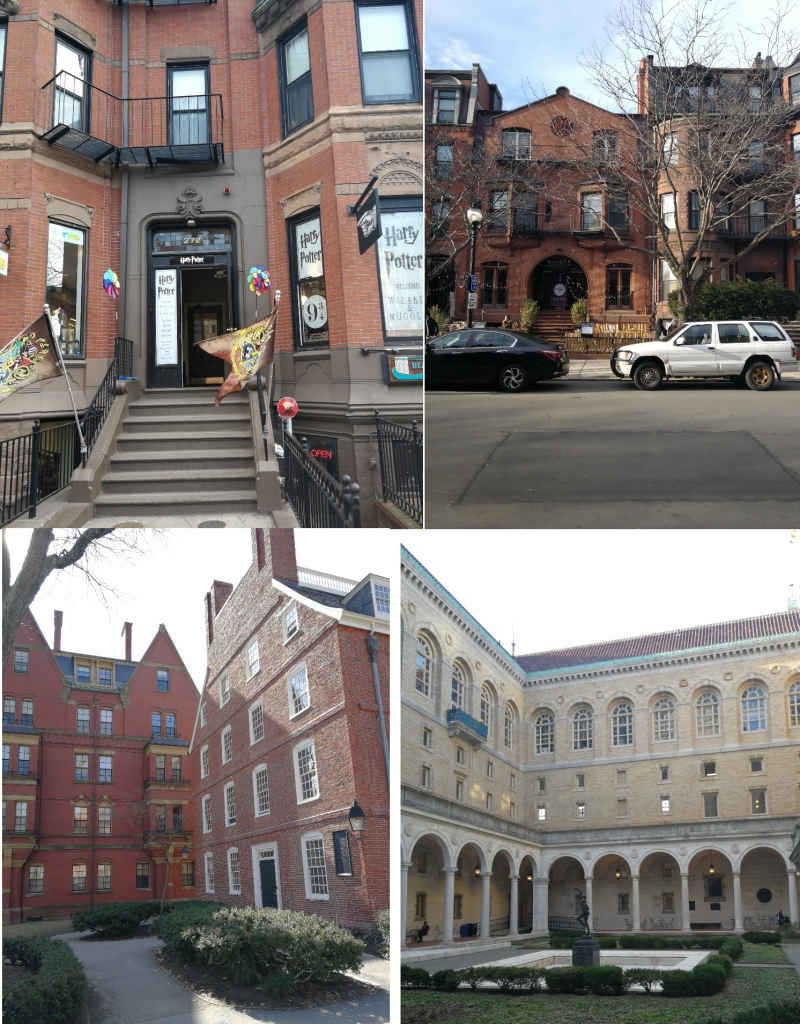
Food is in a great variety there! On the very first evening, we were invited to attend welcome dinner - buffet for both vegetarian and non-vegetarian to choose from (as well as farewell dinner). Most of the time we were dining at Dewick Dining hall which offers a wide variety of food from fresh fruits and vegetables to low-fat/whole-milk ice cream. You can make sandwiches to go, take hot dishes or find vegan/vegetarian food or you can bake waffles by yourself. People there spend a lot of time not only to dine but to socialize and do their academic work. It is really spacious and provides opportunities to spend there time comfortably. During Symposium itself we dined together with the speakers and delegates from military academies which gave us an opportunity to communicate with them face to face! We were mixed for each meal to dine at different places so that you could meet with all the participants and socialize in an informal atmosphere. Everybody is very friendly and mostly start to speak with you first. So, it was not about but pleasant conversations!
One of the main benefits I would love to outline is the opportunity to live on campus site together with other students because you can see their lives from the inside, not only big and tremendous conference halls. You can observe their everyday life, maybe realize whether you are suited for it or not and if you would want to study there. People are very friendly there, they are ready to help you as soon as they seem to be lost or if you need to find out something. What surprises contrary to Russian universities is that everybody is very different and free to express themselves - starting from any kind of garments worn (most of the universities allow only official dress code) in classrooms to bathrooms in dorms that welcome everybody regardless of gender identity or expression. Boston is a student town and they are everywhere, lots of people studying outside in groups or by themselves, there are special spaces for students to gather for studies, interest clubs or just to chill out. Also, everywhere are the announcements for coming activities and events, recruitments to clubs or just information about support lines in case of need. And you can also accidentally bump into extracurricular activities or lecturer giving a speech, we were lucky to get into several of that kind. What is unexpected - it is very calm on campus, there are very few people walking in the streets, it seemed that most of the students keep studying in the evenings as we mostly saw them in dorms or lobby halls. They say themselves that they go to bed around 11 30 PM, while classes start from 10 AM. Famous American parties are held on Fridays and Saturdays, so they gather up at somebody's house and play games and dance. The other option - pubs and bars outside campus but still reachable on foot. By the way, there is a free bus from campus to the closest subway station which is very convenient. As for transport in general - it is quite expensive there, about 2.25 for subway one way, so it can be better to buy a card without limit for several days, we were day passes for our trips included in the programme which is very thoughtful of organizators.
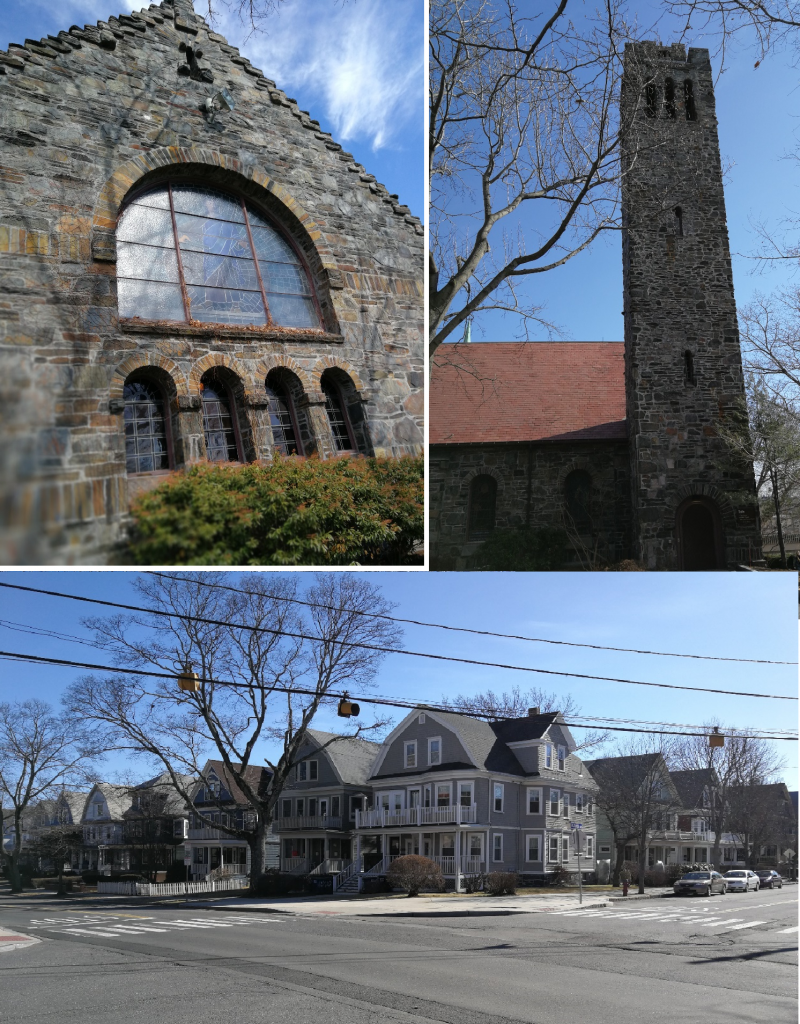
The campus itself is quite huge and definitely bigger than most Russian campuses. Numerous 2-3 floor dorms, big red-brick buildings (both dorms, libraries and lecture halls), sport grounds and several research centers. So, it takes time to cross the whole campus, for example, it could take about 10 minutes to get from your dorm to lecture hall.
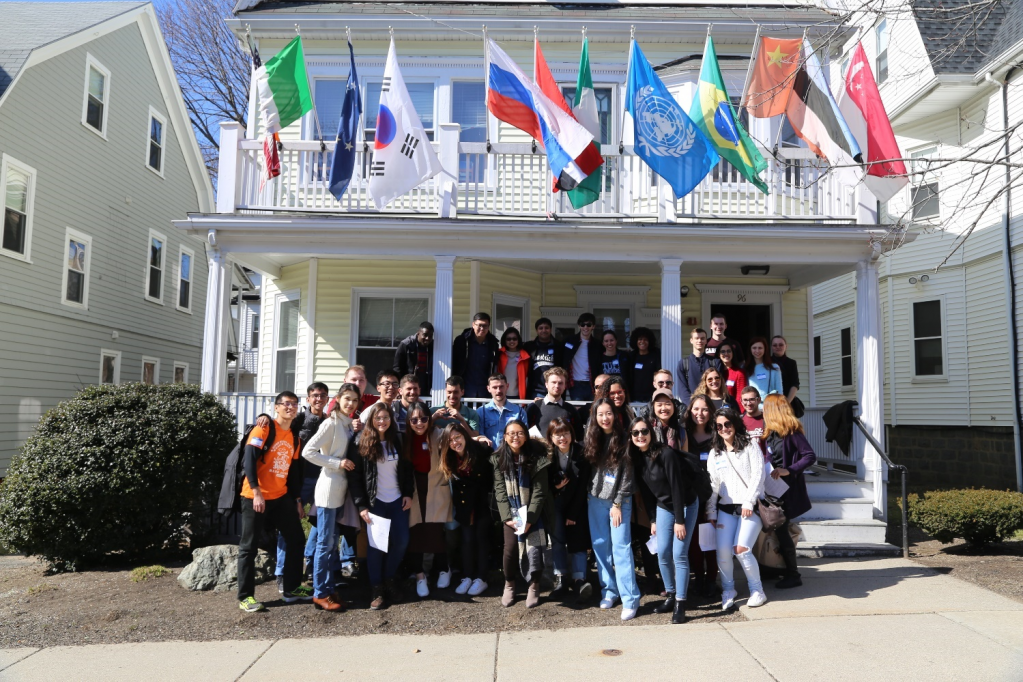
Be ready for dramatic weather changes — sunny warm days can easily change to freezing weather and strong wind. We even enjoyed storm — it was pouring and wind speed was about 60 km/h.
Let's continue our storytelling — on the very first day after we settled down, we had several hours of free time, so we could enjoy time by ourselves. We used a paper map given in the office and started from exploring campus. Having taken round way around campus, we headed towards Dewis Square and then turned to Cambridge and Harvard university consequently. The town itself seems to be very peaceful, it is more like countryside around campus with lots of private houses which are then turn into several universities. You can freely enter them. There are also free excursions around campuses which you can check on their websites. As you get closer to Harvard, you start to feel the hustle and bustle of student life in Boston. Right after passing campuses, you face modern skyscrapers mixed with colonial style red-brick buildings. Soon we had to get back to campus to attend welcome dinner. It was quite an informal event - we were mixed apart from our delegations and, then, presented with a program of the coming week. We played bingo which was not a real bingo - we just had to find out who did outlined activities, so that we could learn more about each other. It was inevitable - we played this game about 5 times in different groups. So, you can see that from the very first moment we started to communicate and there is no way to avoid it! And that is good! After dinner, we went to watch the film called 'A world in disarray' by HBO about global challenges. That is how our first day ended.
Next day we had enough time to settle down as we had breakfast on campus and at noon we started a Scavenger Hunt. What is that? Well, firstly, you are divided into groups headed by Tufts student, then, you are given a list of challenges to complete around Boston. For example, find someone who knows your national anthem or you can teach it to someone and tape it on your smartphone. But mostly it is connected with particular places around the city starting from campus. So, this way you can discover places and interact with inhabitants. It was a whole day activity and took quite a long way to accomplish but it is totally worth it! While walking through the city - you both enjoy the view and get unforgettable memories doing challenges as a team.
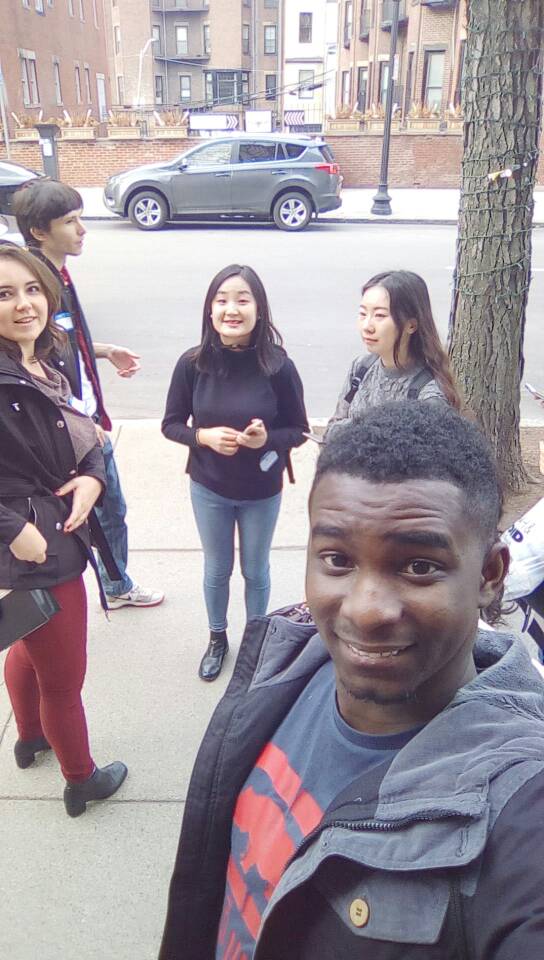
My experience at Tufts University was indeed an exhilarating one. From being lodged in a very comfortable hotel to the educative panel sessions comprising of one the best academics; thought leaders; and captains of industries; the efforts of the Institute of Global Leadership (IGL) is noteworthy.
On sight-seeing, the Scavenger Hunt challenge was stressful but yet interesting as we visited different places in the friendly student community of Boston. Having this with my new friends from Brazil, China, Israel, Singapore, Ireland and the US made me relive the reality of being a global citizen.
My favourite panel session at the symposium was ‘The Changing Social Contract? Globalization and Technology in the 21st Century’. However, the ideas and concepts shared by Mr Jonathan Prentice (United Nations) and Professor Andy Knight (University of Alberta, Canada) on the panel session ‘Beyond Borders: Contending with Transnational Challenges’ were the most thought-provoking.
Mrs Amina J. Mohammed, the current Deputy Secretary General (DSG) of the United Nations, delivered her keynote address on Saturday, 3 March –and it was both brilliant and heart-warming. For me, the highlight of the symposium was when I received an invitation to lunch with the DSG of the U.N. alongside Professors Abi Williams (IGL, Tufts University), Allan Rock (Former Attorney-General, Canada) and Andy Knight (University of Alberta, Canada)! Succeeding the keynote speech, the invitation was a defining moment for me to project myself as one of the change advocates of my generation. And being the only student at the table, I seized the opportunity to listen, learn, and ask questions that bordered on the migration, Russia and the United Nations, and the Sustainable Development Goals (SDGs). Our discussion at the table further enriched my perspective on the course my service to humanity should take. It is abundantly clear that the impact expected of my generation towards a more humane global society cannot wait.
In all, I would like to appreciate the EPIIC-TILIP class of 2018 and the organizing committee for granting me opportunity. My warmest regards to the entire team at the IGL; Ms Heather Barry, Ms Saida Abdalla, Ms Susan Ojukwu, and Mr John, to mention but a few. You guys gave life and true meaning to my trip to Boston.
